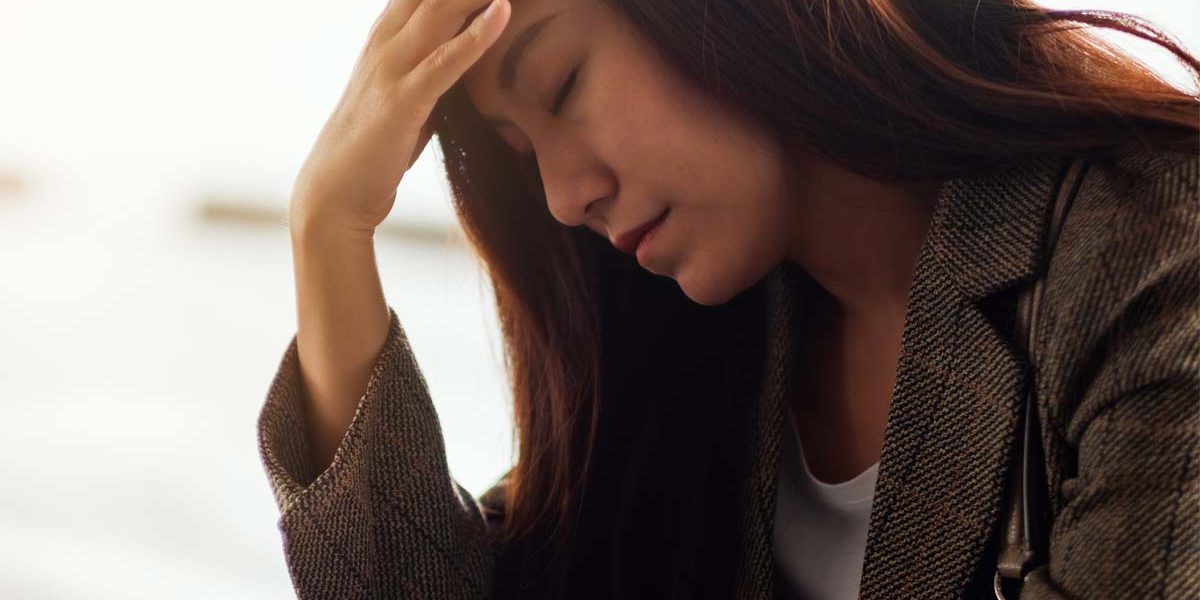Nervousness, tension, and panic may follow you around like a shadow when you struggle with an anxiety disorder. You may simply want an escape, and turning to alcohol seemed like the easiest way to do that. While alcohol may stop the panic, restlessness, and fear that send shockwaves through your life momentarily, choosing this method of escape can cause more problems than it fixes. In fact, for many women, it can lead to addiction. If you struggle with both anxiety and alcohol addiction, you’re not alone. Contact our women’s addiction treatment center in Maine today to get the help you need to overcome your conditions.
Anxiety in Women
When you’re trying to understand the connection between anxiety and alcohol abuse, it’s essential to know what makes anxiety unique in women. Women are almost twice as likely to struggle with anxiety, due to the unique makeup of the chemistry in a woman’s brain.
Anxiety takes advantage of a woman’s natural fight or flight response. The hormones and chemicals in the woman’s brain can cause this reaction to last longer, which increases the risk of forming an anxiety disorder. It can also cause your symptoms to be more challenging to manage on a daily basis. Furthermore, women go through more hormonal changes than men, such as pregnancy, puberty, and menopause, which can cause anxiety symptoms. Additionally, women are more likely to suffer from sexual or physical abuse than men are, which can feed anxiety and make it more challenging for your mind to process emotions.
How Anxiety and Alcohol Addiction Are Linked
If you’re struggling with an anxiety disorder, your symptoms can be overwhelming. You may feel restless all the time. You may suffer from intense panic on a daily basis, causing you to wish that there was something you could do to make it stop.
For women who struggle with anxiety alcohol or drug addiction can follow. At first, self-medicating with substances can relieve your symptoms. However, as you continue to feed this habit, you need more to give you the same level of relief. Unfortunately, this can lead you to feel trapped in a cycle of abuse.
While alcohol may seem like an excellent way to manage your symptoms, using alcohol can make them worse in the long run. Anxiety builds momentum, meaning that one moment of panic or anxious thought can lead to more. This cycle of anxiety and alcohol use can leave you feeling paralyzed. When the effects of alcohol wear off, your symptoms will be worse than they were before. As a result, you drink more to relieve yourself of the symptoms.
Seeking Dual Diagnosis Treatment
Today, most addiction treatment experts agree that your addiction and mental health disorder need simultaneous treatment. This treatment method is called dual diagnosis treatment. This method means that we give you the tools you need to manage both conditions in the long run. There are several benefits of dual diagnosis treatment. For instance, you have support and guidance in understanding your anxiety and alcohol addiction and insight about how they affect each other. You can also develop coping mechanisms to manage your mental health condition healthily.
At Crossroads Maine, we provide the skills that you need to manage your anxiety disorder using a range of evidence-based and holistic treatment options. We’ll create a unique treatment plan that will address your individual needs. Your treatment plan may include:
- Cognitive-behavioral therapy
- Individual therapy
- Dialectical behavior therapy
- Group therapy
- Trauma therapy
To learn more about the link between anxiety and alcohol addiction or about our women’s treatment center, contact Crossroads Maine today at 877.978.1667.


















